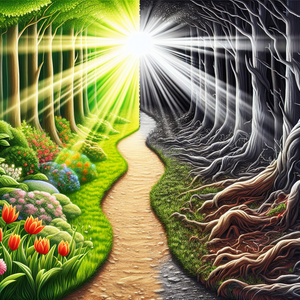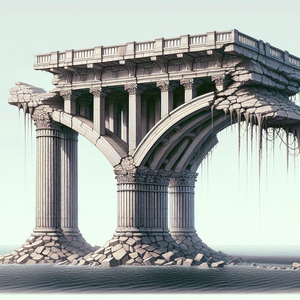Hollywood Meets Silicon Valley: The Tech Influence on Entertainment

One of the most significant transformations in entertainment has been the rise of streaming platforms. Companies such as Netflix, Hulu, and Disney+ have redefined how audiences access and consume content. By providing on-demand viewing options, these platforms cater to the increasingly diverse preferences of viewers. Data analytics plays a crucial role in this evolution, allowing platforms to tailor their offerings based on viewer habits. For instance, Netflix has utilized its vast data resources to develop original series that resonate with audiences globally. The immense popularity of "Stranger Things" and "The Crown" exemplifies how data-driven decisions can lead to cultural phenomena. By analyzing viewer engagement and preferences, Netflix produces content that not only attracts subscribers but also sparks conversations across social media and traditional media.
Immersive Experiences through VR and AR
In addition to streaming, emerging technologies such as virtual reality (VR) and augmented reality (AR) have introduced new dimensions to storytelling. Companies like Oculus and Magic Leap are pioneering these technologies, offering immersive experiences that allow users to step into the narrative. For example, VR has been used in projects like "The Walking Dead: Saints & Sinners," which immerses players in a post-apocalyptic world, enabling them to interact with characters and environments dynamically. This shift toward interactivity elevates viewer engagement, creating a participatory culture where audiences are not just passive consumers but active participants in the storytelling process. As filmmakers and game developers explore these technologies, the potential for innovative narratives continues to expand.
Collaboration Between Tech and Entertainment Giants
The partnership between tech and entertainment companies has resulted in impressive collaborations that blend storytelling with cutting-edge technology. Disney's acquisition of Lucasfilm and subsequent investment in advanced technologies have led to groundbreaking theme park experiences such as "Star Wars: Galaxy's Edge." This attraction integrates VR and AR elements, allowing visitors to engage with the Star Wars universe in unprecedented ways. Moreover, tech companies like Amazon have ventured into original content production, leveraging their technological infrastructure to offer seamless viewing experiences across devices. With Amazon Prime Video, the company has produced award-winning series like "The Marvelous Mrs. Maisel," showcasing how tech can enhance creative storytelling. The rise of esports represents another area where technology and entertainment intersect. Platforms like Twitch and YouTube Gaming have transformed competitive gaming into a mainstream entertainment genre. With millions of viewers tuning in to watch professional gamers compete, esports has blurred the lines between traditional sports and gaming, highlighting the potential of tech in creating new forms of entertainment.
Implications for the Future of Content Creation
As technology continues to evolve, its implications for the entertainment industry are profound. Artificial intelligence (AI) is emerging as a crucial tool in content creation, aiding in areas such as scriptwriting and visual effects. AI algorithms can analyze audience reactions and preferences, enabling creators to refine their work and cater to specific demographics. However, the rise of AI raises ethical questions regarding the authenticity and originality of machine-generated content. Additionally, decentralized platforms and blockchain technology are changing the way creators distribute and monetize their work. By establishing direct connections between artists and audiences, these technologies challenge traditional distribution models, empowering creators to maintain control over their intellectual property. This shift could revolutionize the industry, allowing for more equitable revenue-sharing models and fostering a diverse range of voices in storytelling.
The fusion of technology and entertainment in Los Angeles is a dynamic and evolving landscape that is continuously reshaping how we experience stories. As tech companies drive innovations that enhance content creation, consumption, and interactivity, the implications for the future of the entertainment industry are vast. The collaboration between Hollywood and Silicon Valley is not merely a trend; it represents a fundamental shift that will redefine the essence of storytelling for years to come. As we look ahead, it is clear that the narrative of entertainment will increasingly intertwine with technological advancements, offering audiences richer and more engaging experiences than ever before. The future promises to be an exciting frontier where creativity meets technology, paving the way for unprecedented storytelling possibilities that resonate with diverse audiences around the globe.
Data Analyst for Streaming Services
Netflix, Hulu, Amazon Prime Video
Core Responsibilities
Analyze viewer data to identify trends, preferences, and engagement metrics to inform content strategies.
Collaborate with content creators to provide insights for original programming based on audience behavior.
Required Skills
Proficiency in data analysis tools (e.g., SQL, Python, R) and experience with data visualization software (e.g., Tableau).
Strong analytical and problem-solving skills, with a keen ability to interpret complex datasets.
Virtual Reality Content Designer
Oculus, Magic Leap, various game development studios
Core Responsibilities
Create immersive VR experiences by developing engaging narratives and interactive elements.
Collaborate with developers and artists to ensure the technical and artistic quality of VR projects.
Required Skills
Experience with VR development platforms (e.g., Unity, Unreal Engine) and 3D modeling software (e.g., Blender, Maya).
Strong storytelling skills and an understanding of user experience (UX) design principles.
Esports Event Coordinator
ESL, DreamHack, Riot Games
Core Responsibilities
Plan and execute esports tournaments, ensuring logistics, marketing, and participant engagement are managed effectively.
Build relationships with sponsors, teams, and gaming platforms to enhance event visibility and participation.
Required Skills
Strong project management skills with the ability to multitask in a fast-paced environment.
Knowledge of the gaming industry, including familiarity with popular games and gaming communities.
AI Scriptwriting Specialist
Netflix, Amazon Studios, independent production companies
Core Responsibilities
Utilize AI tools to assist in the scriptwriting process, generating ideas and formats for various media.
Work closely with writers and producers to refine AI-generated scripts, ensuring they align with creative standards.
Required Skills
Familiarity with AI technologies and their applications in content creation.
Strong writing skills with experience in screenwriting or narrative development.
Blockchain Content Distribution Manager
Startups focusing on blockchain technology, independent media companies, and content distribution networks
Core Responsibilities
Develop and manage decentralized content distribution platforms, ensuring fair compensation for creators.
Educate stakeholders on the benefits of blockchain technology in protecting intellectual property and revenue sharing.
Required Skills
Understanding of blockchain technology and its applications in media and entertainment.
Strong communication and negotiation skills to collaborate with creators, tech teams, and legal advisors.


